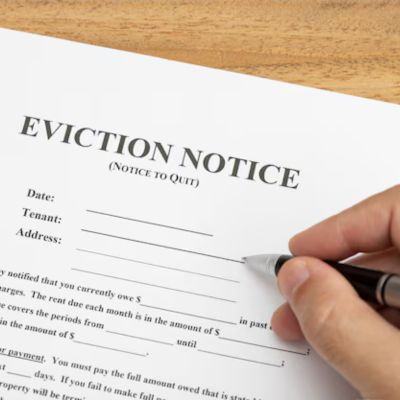Civil Matters: Essential Guide to Eviction Notice for Landlords

An eviction notice is a necessary document provided by the landlord to the tenant when telling them to leave the property. We outline the essential points that every landlord should know to create a valid eviction notice.
- Review Tenancy Agreement: In civil matters, the tenancy agreement provides the foundation for eviction. It outlines the agreed-upon terms, specifying conditions under which the tenancy can be terminated.
- Grounds for Eviction: Eviction notices in civil matters can arise due to reasons like unpaid rent, lease breaches, property damage, or lease expiration. A valid eviction notice must state clear grounds for eviction to meet legal requirements.
- Serve the Eviction Notice: Landlords in civil matters must draft an eviction notice detailing the eviction reason and the specific date by which the tenant must vacate. The notice must align with local regulations.
- Delivery of Notice: Civil matters laws mandate that eviction notices be delivered through legally approved methods, such as in-person delivery, certified mail, or process servers.
- Waiting Period: In civil matters regarding eviction, there is usually a waiting period allowing tenants the chance to rectify issues, such as overdue rent or lease violations, within the notice period.
- Filing for Eviction in Court: If the tenant fails to comply, the landlord may pursue civil matters litigation by filing an eviction lawsuit. A court hearing is then scheduled to review the eviction case.
- Court Hearing and Order: In civil matters involving eviction, both parties present evidence in court. If the court rules for the landlord, a court order for eviction is issued, specifying a deadline for tenant vacating.
- Enforcement of Eviction Order: If the tenant remains after the court’s deadline, the landlord may request law enforcement’s assistance to enforce the eviction in civil matters.
Types Of Eviction Notice
Pay or Quit Notice
This eviction notice is generally for the non-payment of the rent, providing the tenant a few days to leave the place.
Breach Notice
The notice was given for violating the terms and conditions of the rent agreement. Reselling the property without the consent of the owner.
Property Damage
If the tenant causes any damage to the property, knowingly or unknowingly. The owner or the landlord can issue the notice.
Illegal Use Of Property
The property is used for any illegal matters, including drugs. The landlord can immediately issue the eviction notice.
For landlords facing eviction challenges in civil matters, consulting an experienced eviction lawyer in civil matters can ensure all legal procedures are followed accurately.
